East meets West, let's make money together.
Written by: Yanz, Deep Tide TechFlow
During the Bitcoin Asia event in Hong Kong, Binance founder CZ and Eric Trump, son of Donald Trump, made appearances… This conference was supposed to belong only to the elites and big names in the crypto world.
However, what truly stole the spotlight was a white T-shirt printed with four Chinese characters: "Foreigners on Stage."
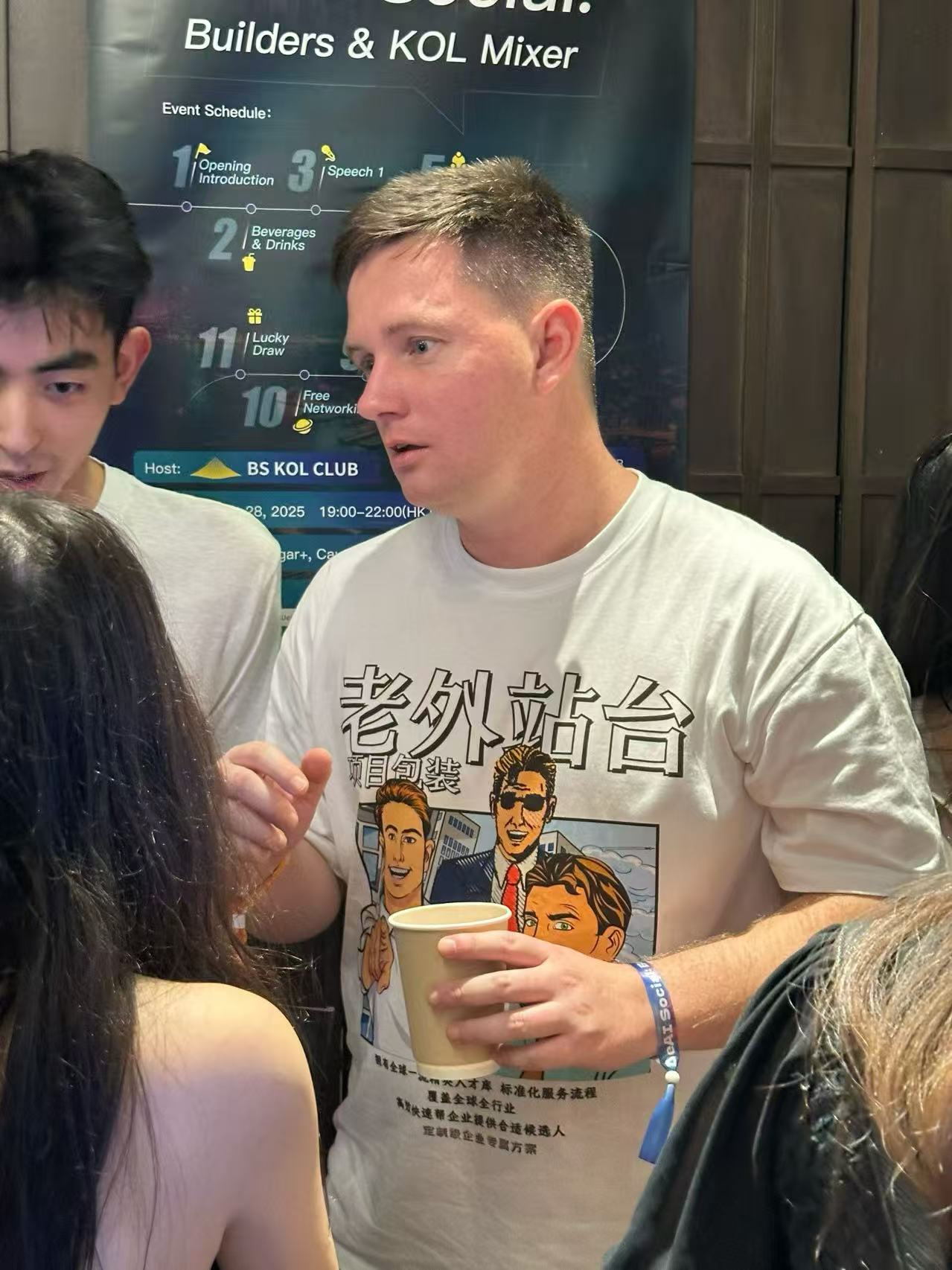
The person wearing it had a Western face.
When he posed for a photo alongside Zhao Changpeng in the crowd, questions flooded in front of the camera:
Who is he? What kind of business is "Foreigners on Stage"?
Foreigners in the Crypto World
This eye-catching foreigner is named Dane, the founder of the crypto agency 4am global.
After graduating from Oxford University with a degree in computer science, a trip connected him with China, and he has stayed for thirteen years. In his words: "If I didn't like it here, I would have left long ago."
Like many Chinese university graduates, Dane was once a "Beijing drifter," working as a "foreign talent" in tech and internet companies in Beijing. Years of living there not only made him fluent in Chinese but also familiar with the nuances of Chinese society, even developing a fondness for TV dramas like "Empresses in the Palace" and "The Temptation of Going Home."
At the end of 2017, the ICO boom ignited a bull market in cryptocurrencies, and Dane officially stepped into the Chinese crypto scene.
The so-called "Foreigners on Stage" is a unique service model in the crypto world: providing foreign representatives for Chinese blockchain projects to enhance their international image and credibility. In English, this type of service is referred to as White Monkey. But for Dane, it is much more than just a "white face"; it is a complete service that includes international packaging, resource connection, and market communication.
"Many people think we only do the 'Foreigners on Stage' packaging, but in fact, we are a purely foreign team, with 80% of our clients coming from European and American projects," he said.
The origin of this business stems from his experience in 2018 when he personally represented a Chinese public chain for overseas business development. As he delved deeper into the industry, Dane realized: Chinese projects have ample funding, strong technology, and abundant exchange resources, but what they lack is an international image, market intuition, and cross-cultural communication skills.
Moreover, with the tightening of regulations on the crypto industry in China, from the ICO ban in 2017 to the complete halt of crypto trading and mining in 2021, many founders are even less willing to show their faces, making "finding a foreign expert to represent them" a necessity.
Thus, the business of "Foreigners on Stage" was born. Dane recalls that at a conference in Hong Kong, many Chinese projects actively sought his services, "about at least 50% of Chinese project parties have such needs," and even large exchanges invited him to become their CEO.
"At that time, I thought it was absurd, but after further research, I found that this demand is actually reasonable."
What kind of interest rate cut cycle are we standing at the starting point of?
White Monkey
There is nothing new under the sun.
Ten years ago, during the hottest years of the real estate industry in China, the service of renting "Western faces" was already prevalent. The New York Times wrote at the time: "Filling remote buildings with foreign faces, even for just a day, is enough to prove that this place is 'internationalized.'"
Mousse mattresses spun a story of "originating from French designer DeRucci in 1868" using the face of a British model, selling mattresses that cost thousands for over ten thousand. It wasn't until just before going public that the Securities Regulatory Commission revealed the truth: it was merely a portrait rights purchase agreement from 2009, and the so-called French lineage was fabricated.
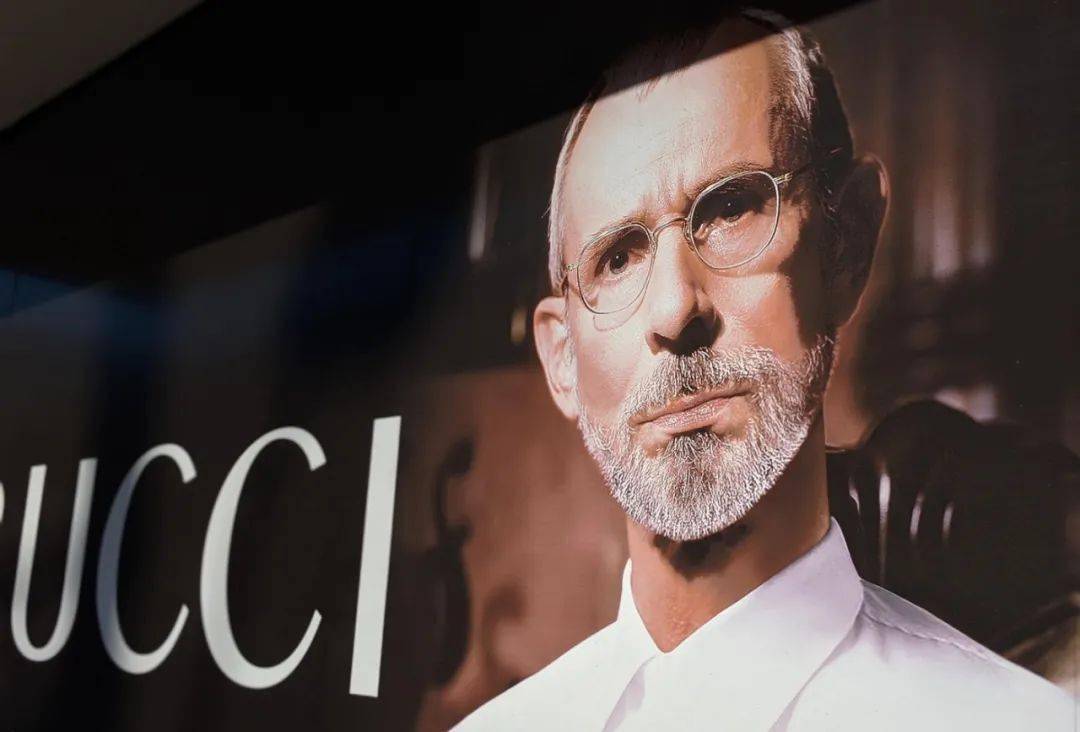
This kind of packaging has a fixed term in the West: White Monkey.
This industry has existed for half a century; as long as one is white, they can appear on stage, in offices, or in advertisements, playing the roles of "foreign executives," "company spokespersons," or "foreign experts" with almost no skills required.
On the forum Reddit, a number of foreigners shared their experiences of being White Monkeys in East Asia:
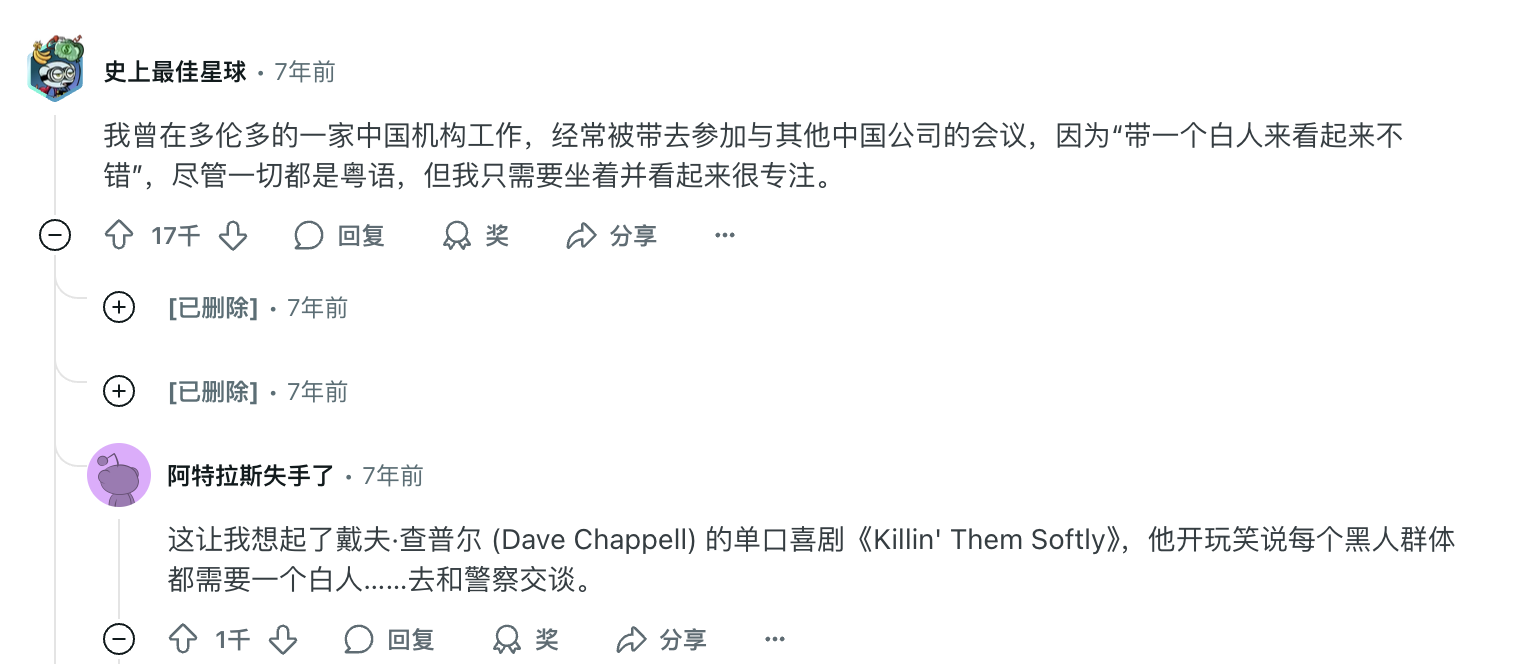
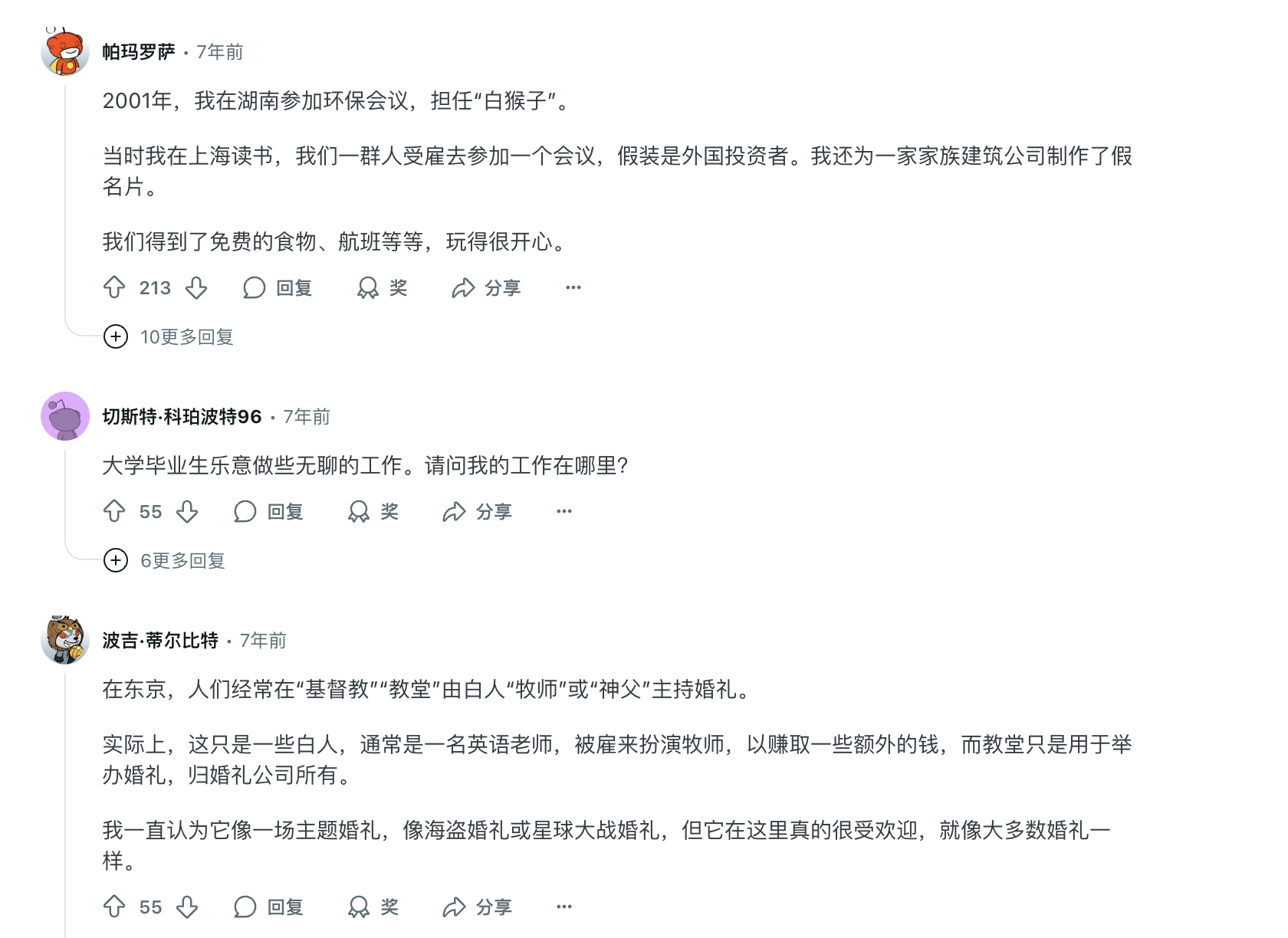
As The Spectator reported in 2022: "White men and women can even be hired as office staff, with no actual responsibilities, just to create a more refined international atmosphere."
This "atmosphere economy" is also prevalent in the crypto industry.
During the ICO bull market in 2017, project parties only needed a white paper to tell their story and raise funds. The team Alex was part of not only wrote white papers but also "found foreign actors." "At that time, at the gates of 'Beiwai' and 'Beierwai,' you could easily find a white foreign student to act as CEO and easily raise tens of thousands of Ethereum," he still reminisces about the madness of that time.
There were even instances where a Chinese team hired a white male model from a nightclub in Shanghai as CEO, only for the model to take control of the project under the name of DAO, kicking the original team out. With the help of Middle Eastern capital, the project's market value once soared to 7 billion dollars.
Not just ordinary people.
In 2020, Steve Wozniak, co-founder of Apple, was hired by a Chinese team to issue the cryptocurrency WOZX, which once had a market value of 1 billion dollars but is now worth only 1 million dollars, nearly zero.
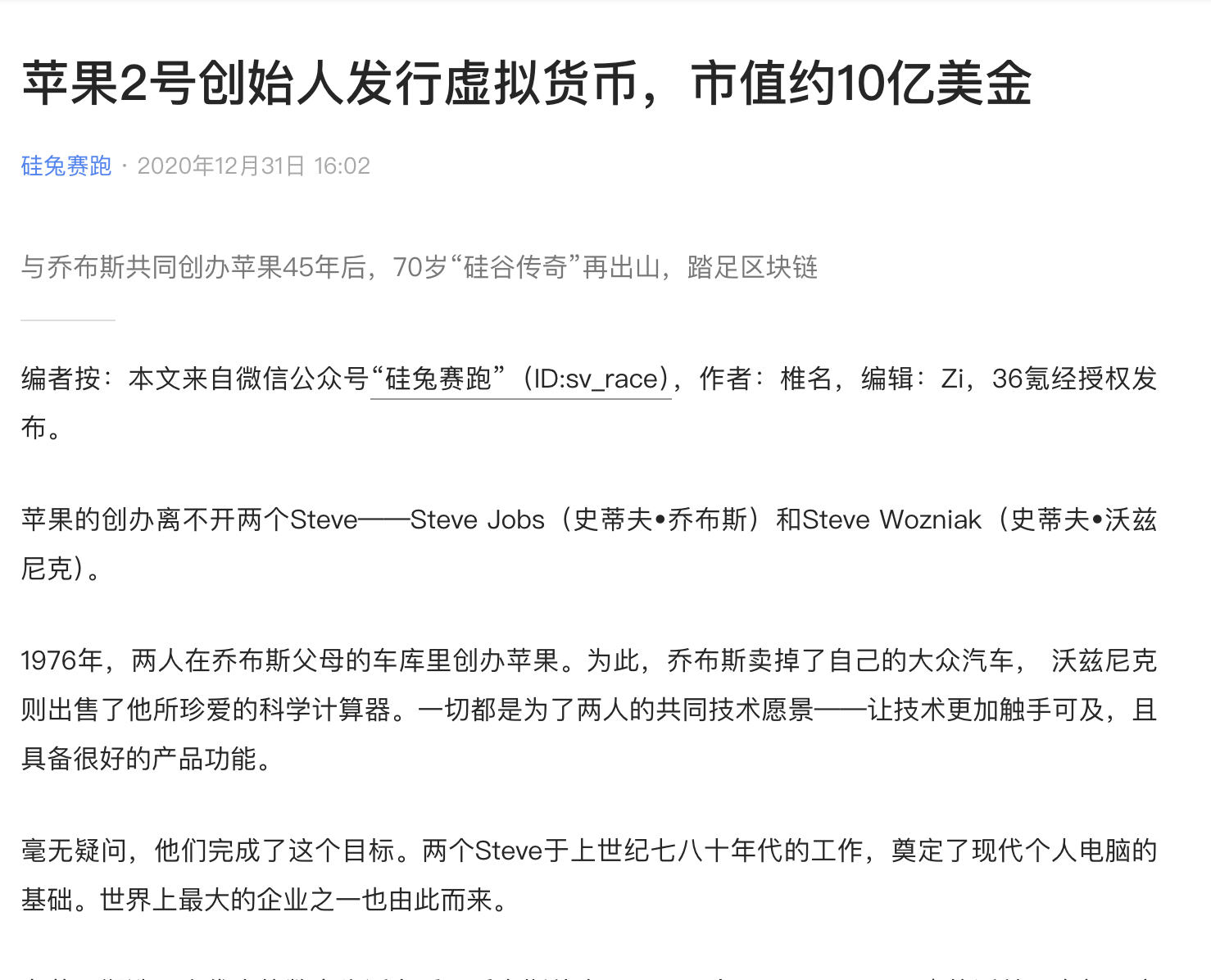
In 2025, former Serbian President Boris Tadic confirmed on X platform that he was the CEO of a certain token foundation, with insiders revealing that the token's behind-the-scenes team is located in Hong Kong.
In February of this year, Argentine President Milei found himself embroiled in a scandal for retweeting promotional material for the $LIBRA token on social media, subsequently hurriedly distancing himself from it. The Economist referred to this as his "first major scandal" during his term.
In Alex's view, "Foreigners on Stage" is also constantly iterating and upgrading.
Initially, it was just about taking photos and recording videos, but as the ICO bubble burst, retail investors became harder to deceive, and the staging model began to enter its 2.0 phase: the real big boss is still Chinese, but positions like CEO and other senior roles are held by foreigners. These individuals are no longer just pure actors; they at least possess skills in public speaking, business development, etc., which can provide stronger market endorsement, "East meets West, let's make money together."
As for the reasons, Alex bluntly states that the most important factor is the regulatory and compliance pressure that forces founders to remain hidden, while on the other hand, retail investors have their filters.
In China, Japan, and South Korea, the public generally believes that Western faces signify "internationalization," while local projects are easily labeled as "Ponzi schemes" or "shitty coins." For many projects, lacking a decent international image means it is difficult to gain VC and exchange investments, as well as recognition from retail investors.
Under this filter, Dane has witnessed many absurd scenes: During the pandemic, many Ponzi schemes and shitty coin projects would randomly find a foreign student to act as CEO and go on a roadshow. In the next city, they would switch to a new "foreigner."
"One city, one CEO, it's utterly ridiculous. If a project has substance, it should find a truly capable foreigner." he stated.
Only after deeply engaging in the business did Dane realize that "Foreigners on Stage" is far from as simple as hiring a foreigner for a photo. Language barriers, cultural differences, time zone issues, relationship maintenance… Compared to merely using a face and endorsement, it requires a professional intermediary to continuously facilitate and manage to uphold the so-called internationalization.
Being an Intermediary is Not Easy
In the crypto world, being a "foreign intermediary," Dane candidly admits that the challenges are far greater than imagined. Language barriers, cultural differences, and time zone issues make it difficult for Chinese teams and foreign talents to directly understand each other.
The first step is always "demand matching." Some projects hope to find experts familiar with DeFi and RWA, while others require candidates to be based in a specific country or city. Dane must constantly negotiate between the conditions of both parties. "Some requirements are reasonable, while others are utterly absurd—when there are too many conditions, we really can't do anything."
Over the past three years, Dane has traveled to global conferences, accumulating a vast network. In about 80% of cases, he can find suitable candidates, but the remaining 20% often end in disappointment. Theoretically, he could just act as a "headhunter," introducing people and then stepping back, but in reality, less than 5% of projects are viable. For 95% of projects, the intermediary must simultaneously play the roles of translator, coordinator, and even event caretaker.
"If there isn't continuous communication in the middle, conflicts will quickly arise, and both sides may even be unwilling to continue cooperating. Cultural differences are the biggest challenge."
In addition to facilitating, maintaining relationships is even more critical. Dane regularly chats with European and American talents, helps them open accounts, or meets them at conferences to catch up. "Many professionals from Europe and America are not short on money; what truly matters is the sense of relationship. The core of the 'Foreigners on Stage' service is to maintain long-term trust."
However, this business has also given rise to chaos. Some people flip a "Western talent" who costs 3000 USD/month and sell it for over ten thousand, leaving Dane shaking his head at the threefold price difference: "I think they will eventually ruin their reputation, but it cannot be denied that there are many such people."
A piece of clothing with four Chinese characters has garnered Dane a lot of attention, along with some "brutally direct and blatant" comments. As the only person in the team who understands Chinese, his employees even do not comprehend the meaning of "Foreigners on Stage."
But it cannot be denied that this business, referred to as White Monkey in the English context, indeed has significant demand. He has also helped Chinese projects successfully secure 5 million dollars in funding. Compared to the offensive wording, he cares more about gaining market attention.
Looking ahead, he even plans to expand the business to Web2 listed companies, "In traditional industries, this demand will only grow."
免责声明:本文章仅代表作者个人观点,不代表本平台的立场和观点。本文章仅供信息分享,不构成对任何人的任何投资建议。用户与作者之间的任何争议,与本平台无关。如网页中刊载的文章或图片涉及侵权,请提供相关的权利证明和身份证明发送邮件到support@aicoin.com,本平台相关工作人员将会进行核查。




